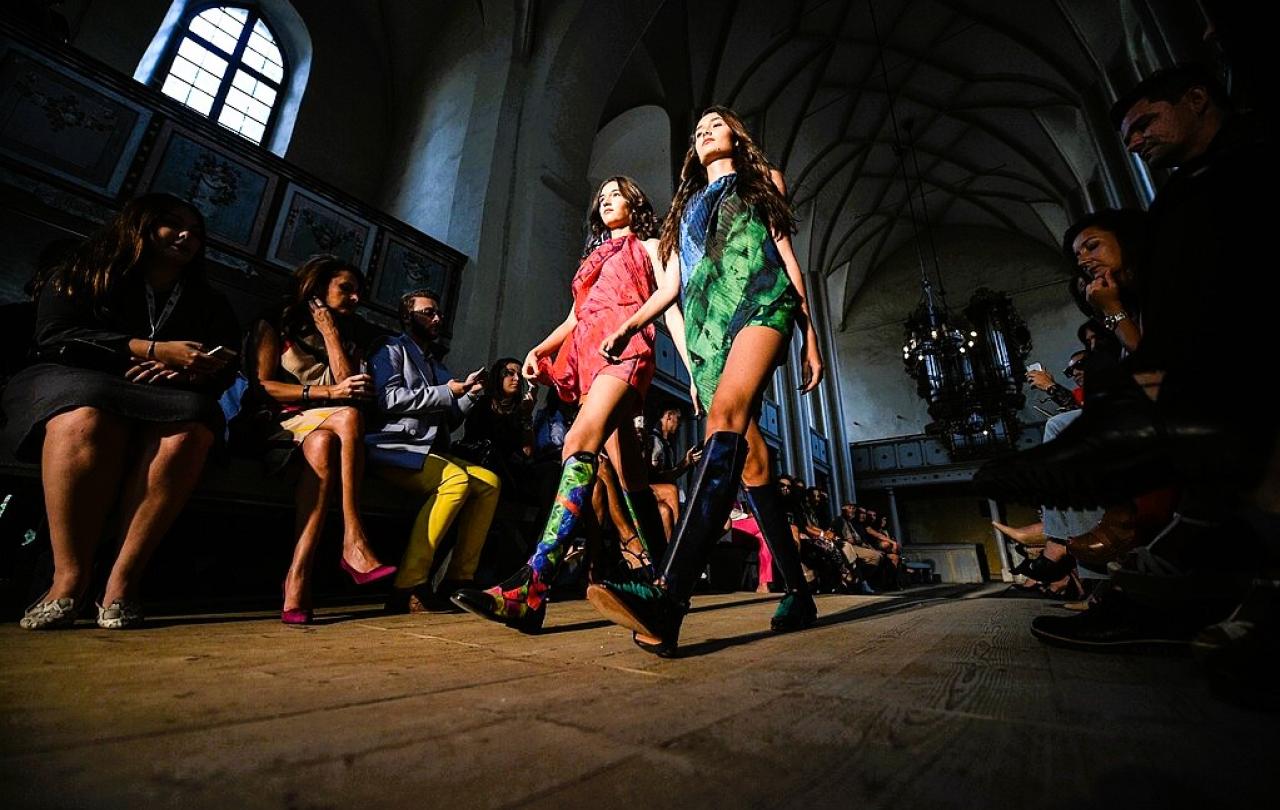
In David Baddiel’s (admittedly excellent) book The God Desire, he has a section on his long-time friend Frank Skinner entitled ‘In a Car with Frank Skinner and his Sins’ (not that Frank would know; he’s refused to read it). After my conversation with Frank Skinner for the Re-Enchanting Podcast, I’d like to similarly entitle this piece ‘On A Rooftop with Frank Skinner and his Doubts’.
Frank Skinner; a comedian, broadcaster and author who has entertained millions through TV shows such as Fantasy Football League, The Frank Skinner Show, Baddiel and Skinner Unplanned and Room 101, as well as many sell-out stand-up comedy tours. His penmanship is also a force to be reckoned with, having crafted the undeniably iconic Three Lions football anthem (which he penned with the afore mentioned Baddiel) as well as my favourite piece of his work, A Comedian’s Prayer Book. He’s always been open about his Catholic faith, determined to ‘keep his hand up’ as a (very often the) Christian in any given room. Frank’s faith has been, and still is, shot through everything he does – even his ‘sinning’.
This conversation was always going to be interesting.
And as such, there are many things one could take away from this conversation with Frank. Perhaps the value he places on doubt as a tool of refinement and source of growth, or his comparing of Richard Dawkins and Christopher Hitchens to bullies at a Christian disco, or even his efforts in ‘responsible sinning’. It’s a fascinating conversation from beginning to end, as I rather embarrassingly told him to his face, I enjoyed "every moment of it."
However, there was one salient question that was left lingering in my mind days after our conversation ended – are we (by ‘we’, I mean Christians) interesting?
There’s been a theme that’s run through Re-Enchanting thus far, prevalent in our conversations with Jennifer Wiseman, Paul Kingsnorth, Francis Spufford, and now Frank Skinner. And that theme is this: in the context of our 21st Century cultural moment, Christianity is profoundly weird, and that weirdness is the very basis of its power. It cannot, and should not, be blended into the so-called secular moment we find ourselves in. This is confronting for me, someone who has admittedly spent her life watering down the ‘oddest’ parts of Christianity (only in public, I should state) in an attempt to make it more palatable to my secular peers. As a result, I’ve ashamedly become the type of Christian that Tom Holland would tell to ‘grow up’. Well, if one finds themselves somewhat disillusioned with such a boring ‘no-man’s-land’ of compromised belief, this episode is certainly the perfect antidote. In fact, this entire series is.
Frank is only interested in the weird. In the un-graspable. In the outrageous. The way he speaks of interactions with his (beloved) atheist friends made it seem as though atheism is one of the most obvious things one could claim to be, meaning that there’s nothing particularly interesting about it:
“There’s something I find a bit confusing about people in the 21st century saying “this is how daring I am – I’m going to come out as an atheist”… atheism given over as if it’s a brave stance. I’ll show them a brave stance, and it’s not atheism.”
Speaking , in comparison, of sitting in Mass in his local church, looking on as his priest holds up a piece of wafer declaring that it is the Saviour of the world, Franks says,
“in the 21st Century, the idea that there’s a God, that he’s got a lamb, a representative that came to earth, that he takes away the sins, and that here he is in this bit of wafer… it’s outrageous. I don’t like the idea that we have to go to them (atheists). It’s made it (Christianity) a dull half-way house."
Hence this lingering question: are Christians actually the more interesting ones? My conversation with Frank made me think that we may just be.
Even though, as I have mentioned, the entire conversation was one to remember, it was the final five minutes that that truly ticked the ‘re-enchanting’ box for me. Justin and I, along with our guests, have often discussed Christianity as ‘the greatest story every told’, but Frank introduces us to Christianity as a
“living poem, super poetry, poetry that’s physical, poetry made flesh, poetry that actually exists.”
And not only that, but
“we are a part of that poem, we just need to step into it. There is a blank line waiting for us…”
How beautiful. It’s clear that, to Frank Skinner, Christianity is not only very interesting, it’s profoundly enchanting. Listen to the first episode of Re-Enchanting Season 2 enjoy Frank’s disconcerting ability to make you simultaneously laugh lightly and ponder deeply.





